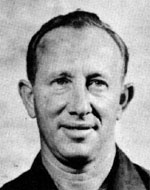Son ofAba And Malka. He was born on December 30, 1925 in Tel Aviv. When he reached school age, he attended elementary school in Kfar Tavor. After graduating, he studied at Kadouri Agricultural School in the first graduating class and later moved to the Faculty of Agriculture of the Hebrew University of Rehovot after spending several years in the agriculture. In his youth he was a member of the Hanoar Haoved movement. As a teenager, he was a tour guide and then lectured in agriculture. From his early childhood, from his father’s house, he was a man of the land. The work of the Haganah and the army constituted two facets of his personality, which he merged into perfection. He was not a civilian in uniform while serving in the army and a soldier in work clothes while he was at home. One was a wolf, a member of Kibbutz Hahotrim – a farmer and a fighter. He began his military service in the Haganah, where he was drafted into the IDF in February 1948 and served in the War of Independence as commander of a company, then served in the Sinai Campaign as commander of a battalion in the Armored Corps. When he left the battalion with his battalion, all the soldiers regretted him and I was very sorry, but I knew that wherever he went, he would reach the end of his duties and the army. This year, he and his battalion returned to the Armored Corps – and I was Simcha for Zevik and for the armor. ” “When I met him before the Sinai Campaign, there was no doubt that he was a leader and a commander in the ‘other’ system,” Lt. Gen. Haim Laskov wrote of him: “There was a personal example, sincerity, honesty and a wonderful mixture of discipline, initiative and friendship. All of his actions were in the essence of his leadership, but only one doubt passed for a moment, and in the midst of the tumult of the battle he knew how to give an order that would also be heard … And here was a night attack and a nightly assault of anti-artillery legs against the vital and strong position of the Rafah compounds The command sounded, sounded, and carried out, full of a special aura of encouragement and confidence: for the battalion’s assault, some of its fighters said that each effort was no more than an effort Zevik’s efforts were excellent, and later on we met in different places, the same eyes, the same quiet, the same leadership performance of which the light of his face was raised – even in the Six-Day War. ” In his military career, Ze’ev reached the rank of lieutenant colonel. One of his subordinates, who was under his command for fourteen years, wrote: “Every day there was a ring of brotherhood, of comradeship, of command authority.” The concept of brotherhood was beyond any framework, it was a feeling of confidence that no harm would befall you as long as it was soft with you. Perhaps here lies Ze’evik’s greatness as commander. His people loved him with a love of duty and conscience because he was taller than he was, and he was not arrogant, because he had been meticulous about them like a thread of hair and was not petty; That he was broad-hearted without concessions, even though he fulfilled principles without trampling people; For having cared for them as a good friend and a pain. But on Sunday, 28.5.1968, he died in the course of fulfilling his duties in the Sinai, and laid down a wife and five children, who was brought to eternal rest in the cemetery that is under the vows. In the wolf, you can see the true image of the humane soldier, who hates war, who invades war when the war is forced upon his people, fighting with courage in mind, and without thinking of hating the enemy is proof that there is no basis for hatred to defeat the enemy. To hate the enemy in order to be a good soldier, to love the country, enough to love the people … There is no more striking sentence about Zevik than the sentence that Hu himself wrote – “There is an identity Absolute agreement between a good soldier and a moral soldier. “Ze’eviK. proved in his life that he was. In the month of Sivan 5729, on the first anniversary of his death, his kibbutz published a memorial file called Zevik, in which his death was reflected in his deeds and deeds, in the army and in the agriculture, in the meeting of friends and in the act of education, “To Shmuel Segev.
